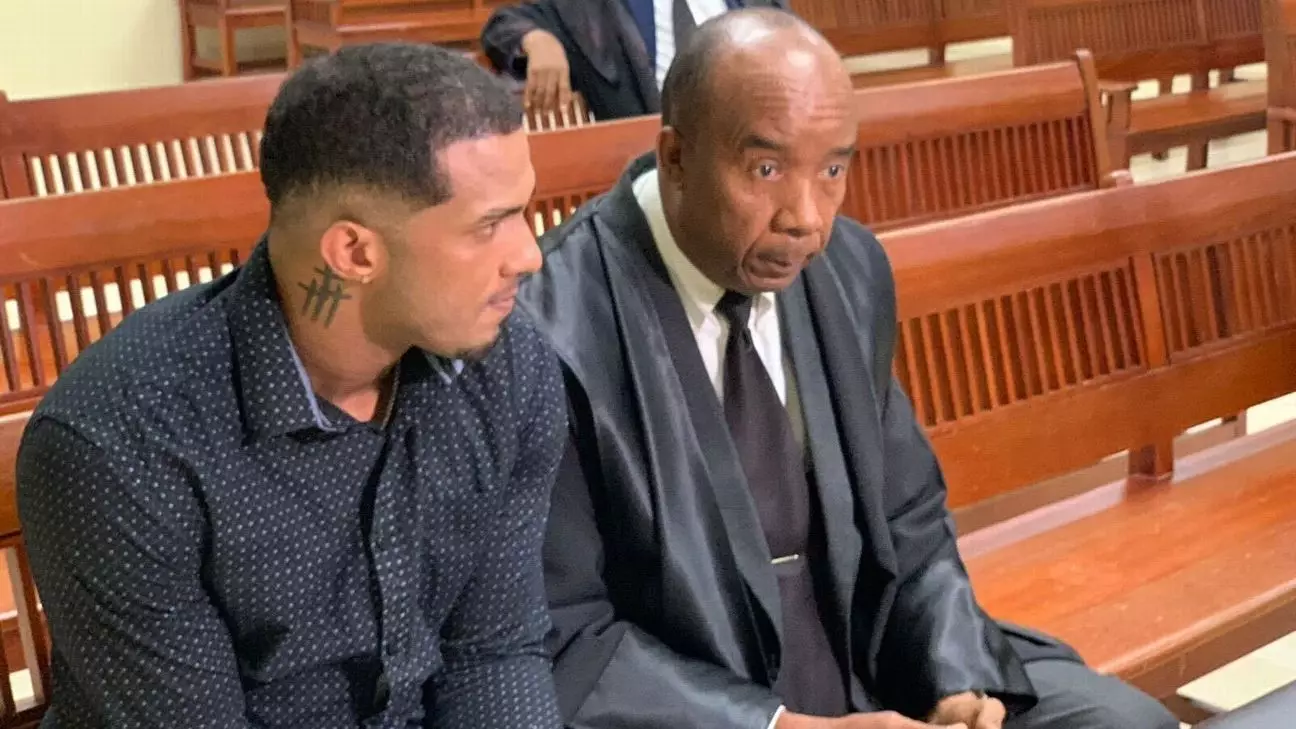Wander Franco: A Tumultuous Path in the Face of Legal Struggles
The story of Wander Franco, a talented shortstop for the Tampa Bay Rays, is one that has captured the attention of both baseball enthusiasts and the general public alike. While Franco’s skills on the field have earned him accolades, his off-field challenges present a stark contrast. His ongoing legal troubles have thrust him into the spotlight for reasons no athlete desires, raising critical questions about accountability and justice. For those who admire his athletic prowess, reconciling this duality is no easy task.
As someone who has followed his career closely, I find myself torn between admiration for his talent and concern over the serious allegations he faces. It’s a reminder that athletes, despite their fame and fortune, are as susceptible to life’s complexities as anyone else. This situation serves as a poignant example of how quickly life can shift from triumph to turmoil. It’s a narrative that resonates deeply, urging us to reflect on the broader implications of success and morality.
In exploring Wander Franco’s journey, we delve into not just the facts but also the emotions and ethical dilemmas it presents. This exploration is more than just about a legal case; it’s about understanding human nature and society’s response to such scandals. Let’s take a closer look at the key elements of Franco’s story and what they reveal about the intersection of sports, law, and personal integrity.
Key Takeaways
- Wander Franco’s legal issues have delayed his trial until June 2025, raising uncertainties about his future.
- The case highlights serious allegations including sexual abuse and potential financial manipulation.
- Franco’s situation brings into question MLB’s policies on player conduct and accountability.
The Legal Battle Unfolds
The courtroom proceedings concerning Wander Franco have been nothing short of tumultuous. Held recently in Puerto Plata, these sessions underscored significant disorganization in handling such high-profile cases. Of 36 witnesses expected to testify, only three appeared, prompting Judge Yacaira Veras to delay the trial upon the prosecution’s request. This postponement extends an already complicated legal battle, casting doubt on both prosecutorial strategy and defense readiness.
Franco’s attorney expressed frustration over these delays, emphasizing the lack of substantial evidence against his client. The postponement is particularly contentious given Franco’s commitments to spring training, adding another layer of stress to an already fraught situation. The young athlete finds himself at a crossroads where legal obligations clash with professional responsibilities—a dilemma not uncommon in high-stakes legal dramas.

Despite these challenges, Franco maintains a public stance of resilience. He insists that his career is far from over, projecting confidence even as allegations threaten to overshadow his achievements. This attitude speaks volumes about the complex interplay between personal identity and public perception. For many public figures like Franco, navigating accusations becomes an exercise in balancing image with reality.
The Allegations Explained
Central to Wander Franco’s legal woes are grave allegations involving a minor. Prosecutors claim he engaged in an inappropriate relationship with a 14-year-old girl, further complicated by alleged financial transactions intended to secure consent for this misconduct. These accusations paint a troubling picture of exploitation and power dynamics gone awry—a stark reminder of how money can corrupt moral judgment.

The involvement of the girl’s mother adds another layer of complexity to this case. Charged with money laundering, she reportedly transitioned from an ordinary lifestyle to one marked by unearned opulence. Her motives face scrutiny under a lens that questions whether financial gain took precedence over moral responsibility—an unsettling thought amplified by her rapid lifestyle change.
MLB’s Role and Response
This situation extends beyond personal consequences for Franco; it has significant implications for Major League Baseball (MLB) itself. In response to these allegations, MLB placed Franco on administrative leave before adding him to their restricted list—a move reflecting their policy on domestic violence and child abuse. This decision underscores MLB’s commitment to addressing misconduct but also raises questions about consistency in policy application across different cases.
As MLB conducts its investigation parallel to legal proceedings, Franco’s case challenges how sports organizations handle off-field controversies involving their players. The outcome could redefine disciplinary measures within professional leagues while influencing public perception of fairness and justice in sports environments.
The Firearm Incident Complication
Addition to these accusations is an unrelated yet equally concerning incident involving illegal firearm possession by Franco. A Glock pistol found unregistered in his vehicle during an altercation further complicates perceptions about his judgment outside baseball fields—fueling discussions about athletes’ responsibilities beyond their professional realms.
This incident intensifies scrutiny around Franco—it suggests lapses in judgment that could jeopardize career opportunities built over years through hard work and dedication—a cautionary tale highlighting how rapidly reputations can unravel under public scrutiny.

Final Thoughts
As we await the new trial date set for June 2025, Wander Franco finds himself navigating precarious waters where personal resilience meets external pressures head-on—his fate hanging delicately between judicial outcomes yet determined by broader societal perceptions too complexly intertwined with modern-day sports narratives themselves evolving faster than ever before possible until now thanks partly due technological advancements facilitating real-time information sharing globally today unlike any previous era imaginable throughout human history till date so far…
Wander FrancoLegal TroublesMLB PoliciesPublic PerceptionAthlete Accountability
“`
[CONTINUE FROM HERE]


Leave a Reply